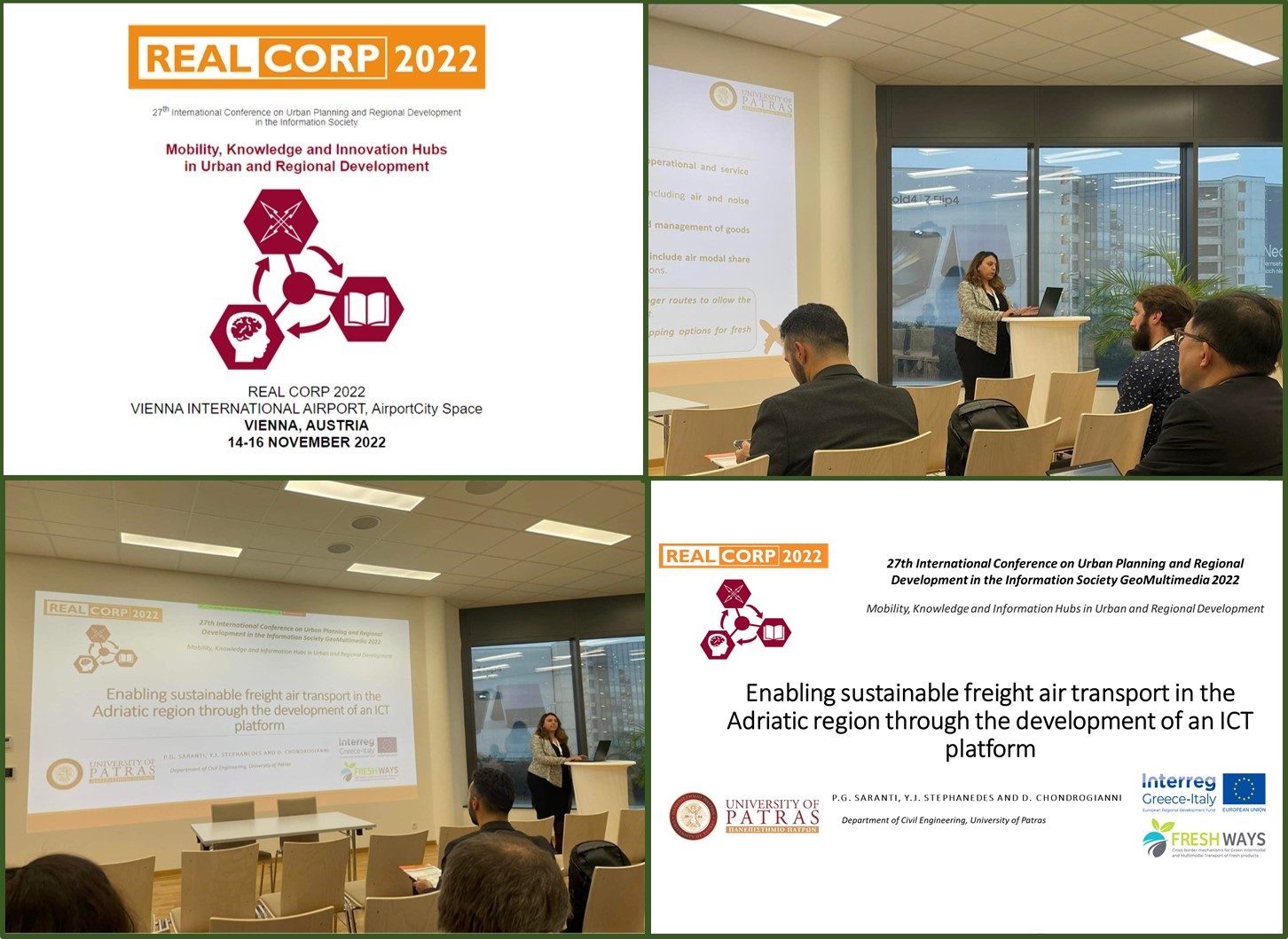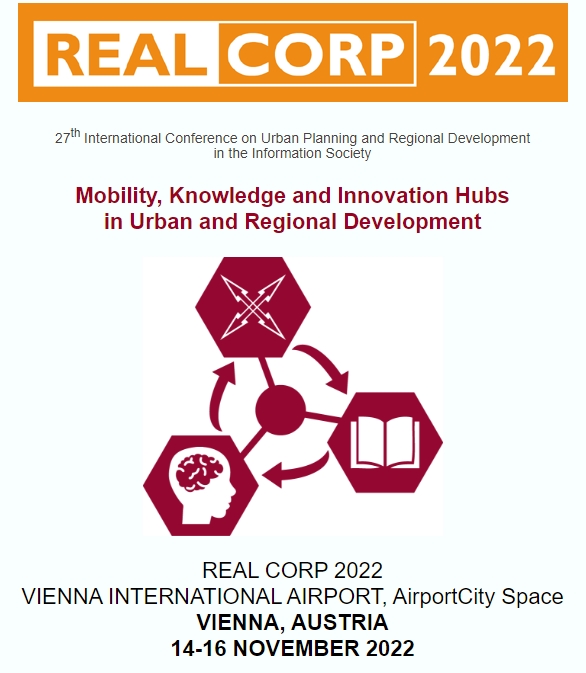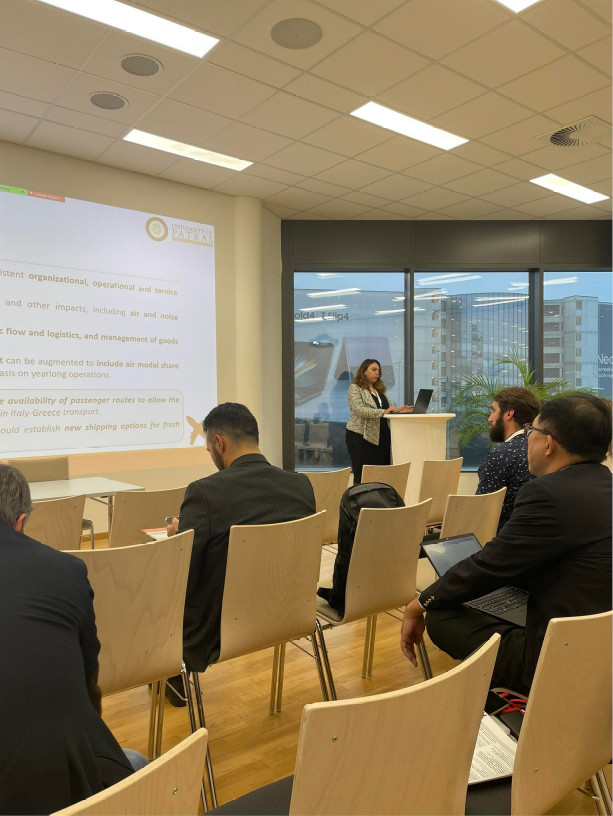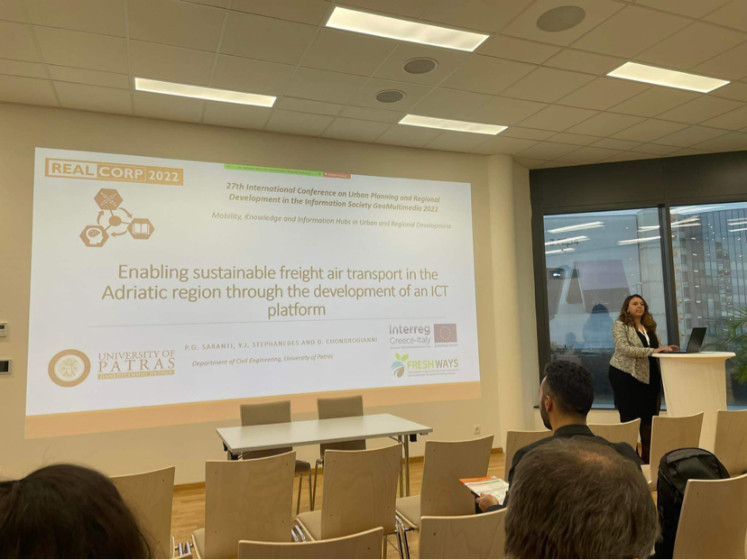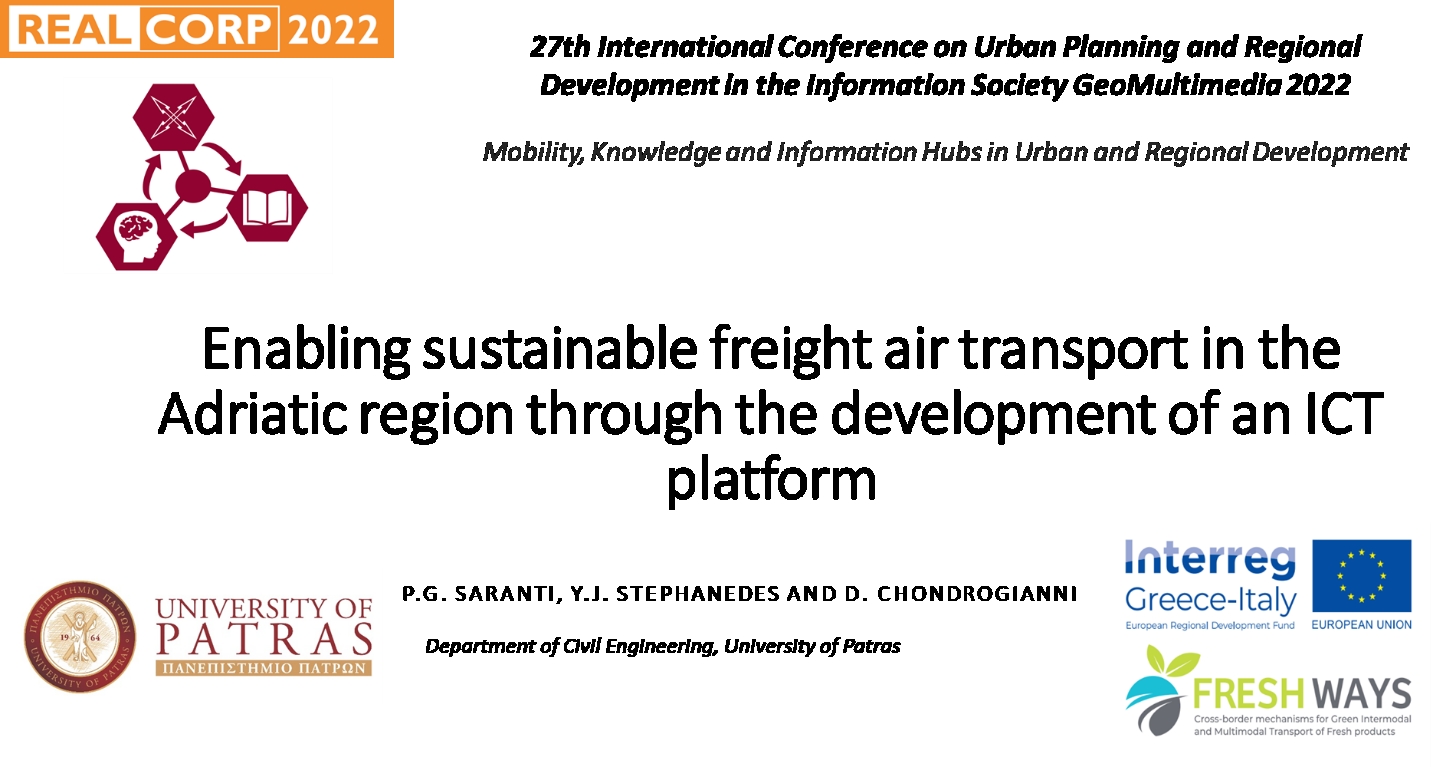The 27th International Conference on Urban Planning and Regional Development in the Information Society, was organized by REAL CORP on 14 – 16 November 2022. The 27th International Conference took place in Vienna, Austria.
Panagiota Saranti, PhD candidate and researcher at the Department of civil Engineering of the University of Patras, Yorgos Stephanedes, Professor emeritus at University of Patras, and Dimitra Chondrogianni, PhD and researcher at the Department of civil Engineering of the University of Patras participated in the conference as representatives of the University of Patras with the presentation “Enabling Sustainable Freight Air Transport in the Adriatic Region through Development of ICT Platform”.
Specifically, they presented the paper that addresses the need to improve and extend the availability of passenger routes to allow the potential for mixed cargo in the Adriatic with a case study in Italy-Greece transport. The new service through an integrated ICT platform would establish new shipping options for fresh products, empowering Italian and Greek local producers. Furthermore, they showcased the negative impacts arising from all logistics and industrial activities by freight transportation and highlighted the ICT based transport applications. Also, the FRESH WAYS concept and the benefits of the ICT platform and methods designed for the project were presented, as long as its requirements analysis and the operational requirements.
The main goal of the REAL CORP conference series is to bring together for another year leading experts in the field of spatial planning, geoinformation and related disciplines to exchange their knowledge, share their ideas, discuss current developments and get together for face to face networking leading to the development of new thoughts, partnerships and projects. The overall topic of this year’s conference was “Mobility, Knowledge and Innovation Hubs in Urban and Regional Development”.
Some 200 important experts and professionals in the field from more than 30 countries worldwide, supported with their presentations the twelve main conference topics:
-
Sustainable mobility – how can transport and the environment be brought under one roof?
-
Climate change and climate protection – how many minutes to 12 is it, how do we need to change our approach to the ecosystem?
-
Natural disasters and extreme weather events: What impact do our actions have on nature? How can we respond to them?
-
Ecosystem and resources: energy, clean water, fertile soil and clean air are limited – how do we use them sparingly and efficiently?
-
Urban farming – on house fronts, underground, in abandoned farm areas, on balconies?
-
Social change and changes in population structure: Different continents have very different starting points, and accordingly the processes of change are also very heterogeneous. What can we learn from each other here?
-
Spatial transformation in urban and rural areas – which structures are affected by change, what impact does this have on other areas?
-
“Long Covid” thought differently – what long-term effects of the pandemic will accompany us in the future?
-
Digitisation brings new forms of work, life and living? To what degree is this useful, what advantages and disadvantages does it create?
-
Social innovation – with which measures, ideas and models can social challenges be met? To what extent are social and technical innovation interdependent or merged?
-
Technical innovation: What impact does the rapid progress of (especially digital) technology have on the future development of our cities? How smart does a city have to be?
-
Real estate of the future: What requirements will buildings and settlements have to meet in the future? Accessibility, low or zero energy, resource conservation, re-use, mixed use, inclusion – what is feasible, where are compromises necessary?
For more information, you can refer to the following link: CORP



